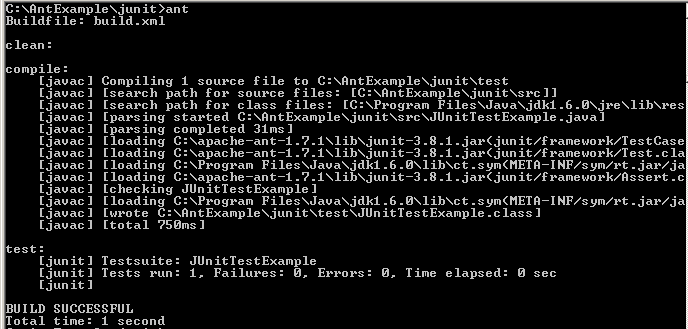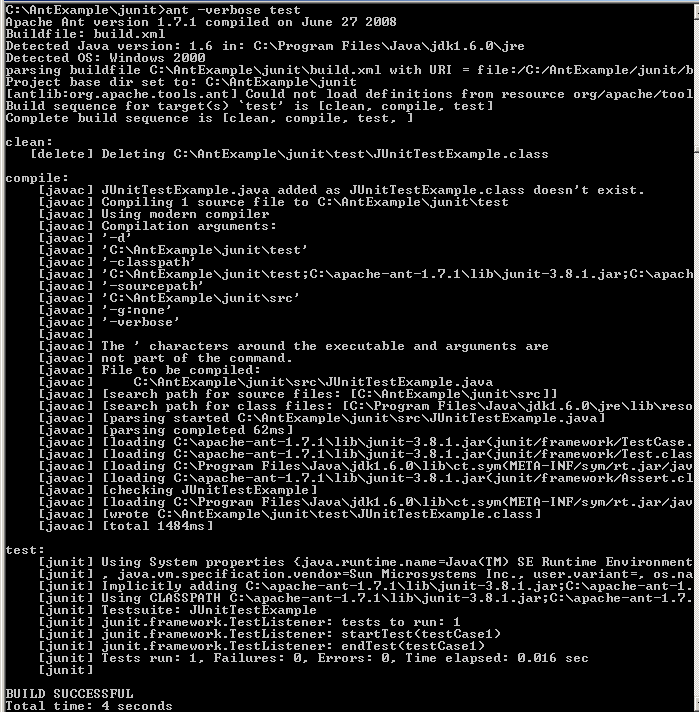Ant and JUnit
This example illustrates how to implement junit test case with ant script. This is a basic tutorial to implement JUnit framework with ANT technology. Before creating any test case you will need Java compiler, Ant and JUnit. You will also need junit.jar in your Ant's library folder.Download the junit.jar file from the given link http://junit.org/ and paste this jar file in ANT_HOME/lib folder. Then create a build.xml file as shown below.
| <property name="testdir" location="test" /> <property name="srcdir" location="src" /> <property name="full-compile" value="true" /> <path id="classpath.base"/> <path id="classpath.test"> <pathelement location="/apache-ant-1.7.1/lib/junit-3.8.1.jar" /> <pathelement location="/apache-ant-1.7.1/lib/junit-3.8.jar" /> <pathelement location="${testdir}" /> <pathelement location="${srcdir}" /> <path refid="classpath.base" /> </path> <target name="clean" > <delete verbose="${full-compile}"> <fileset dir="${testdir}" includes="**/*.class" /> </delete> </target> <target name="compile" depends="clean"> <javac srcdir="${srcdir}" destdir="${testdir}" verbose="${full-compile}" > <classpath refid="classpath.test"/> </javac> </target> <target name="test" depends="compile"> <junit> <classpath refid="classpath.test" /> <formatter type="brief" usefile="false" /> <test name="JUnitTestExample" /> </junit> </target> </project> |
Create a JUnitTestExample.java file in the src directory as given below.
| import junit.framework.*;public class JUnitTestExample extends TestCase{ public void testCase1(){ assertTrue( "TestExample", true ); }} |
If you run the source code with ant command, then the following output will be displayed.

If you compile with ant -verbose test command, then the following output will be displayed.

No comments:
Post a Comment